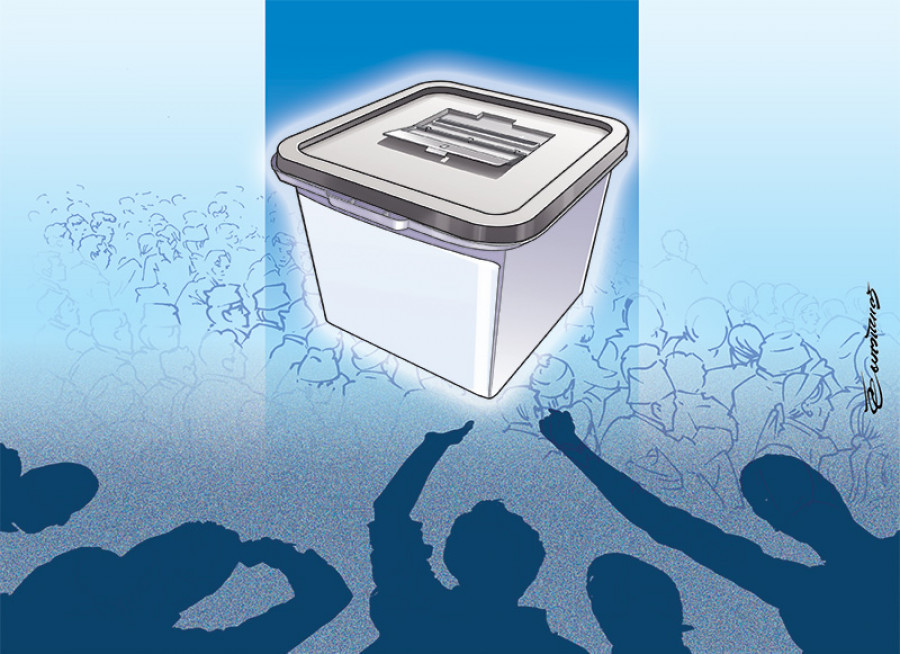Editorial
Difficult but doable
The political parties should do more than pay lip service to give voting rights to Nepalis living abroad.
Nepali political parties are never short of dreams to sell to the masses. It’s a different thing that most of the big dreams are soon forgotten. Ensuring voting rights for Nepalis abroad has become a popular electoral agenda. The political parties and their candidates compete to impress Nepalis abroad with catchy slogans like note chalne, vote nachalne (“Why can’t we give migrant workers a vote even as we accept their money?”). In recent years, nearly all political parties—new and old, big and small—have been competing to appease the migrant workers. This is because with direct and easy communication with their kith and kin back home, the migrant workers have started influencing how folks in Nepal vote. Not just that. They sustain their families and by extension the economy of Nepal—the money they remit is equivalent to a fourth of the national GDP.
Politicians thus don’t waste any opportunity to pledge voting rights to migrant workers and the latest one has come from the head of the government. Prime Minister Pushpa Kamal Dahal, addressing a virtual interaction with the representatives of foreign chapters of his CPN (Maoist Centre) party on Friday, once again reiterated his commitment to do everything in his power to ensure the voting rights of Nepalis living abroad.
In principle, nearly every political party commits to the right in their election manifestos. The Supreme Court has issued a mandamus order to the concerned authorities to make legal and logistical arrangements to conduct “external voting” in any way possible. The Election Commission is also working on a draft bill to include a provision to this effect and will soon forward it to the concerned ministry and the Parliament. This follows a discussion on the issue in the State Affairs Committee of the lower House.
With the growing trend of migration for work, study and other reasons, a large section of the society (over 2.2 million by current estimates) is living outside the country at any point. It is unjust and undemocratic to deprive them of their voting rights. No amount of expense or logistical complexity justifies that. Former election commissioners and experts in this field say it is a daunting task and authorities don’t seem to be giving it the needed attention—but it is by no means impossible. As our political parties are still hesitant even to adopt electronic voting machines (EVMs) that have been successfully employed to conduct democratic elections the world over, it would perhaps be unrealistic to hope that they will (or can) ensure voting from abroad in upcoming elections. Yet try they must.
These days, there are not many countries Nepalis have not reached for work or study. In some destinations like Qatar and Malaysia, people from all over Nepal have gone; in others, there are just a handful of Nepalis. The commission has to arrange for different kinds of ballot papers in each case, a logistically demanding task. That being the case, even as the Election Commission is fine-tuning legal provisions, it also needs to simultaneously work on possible modalities of absentee voting and make political parties agree to a system that is feasible in our context.




 8.88°C Kathmandu
8.88°C Kathmandu














